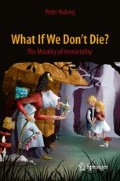Abstract
One function of a human being is to be an organizing principle for all constituent parts. The constituent parts do not care whether the totality is happy as long as it itself is. Our constituent parts constantly leave us, our hair when we have a haircut, our nails when we cut them. Do we have an obligation to make sure that our constituent parts are as happy as possible even after they leave our dominion? And, of course, the great majority of our constituent parts leave us, before we ourselves leave existence. So few are the molecules that follow us from cradle to grave. Hume suggested that personality itself is no constant and that every moment makes us new. So perhaps the score-keeping of happiness we make as an organizing principle is entirely irrelevant. Perhaps ultimate happiness is to be found in breaking free of the finiteness of our identities, perhaps Buddhism and Hinduism is right when suggesting that the ultimate aim must be release from individuality, as will happen when Nirvana has been reached. In Christianity we go home to live in God when we die. There is an element of Selbstaufgabe also here. Yet, if God is an Über-ego, of which we will be part, will our individuality be of interest ultimately, even to us ourselves when we become part of the God-perspective?
Access this chapter
Tax calculation will be finalised at checkout
Purchases are for personal use only
Notes
- 1.
A bit in this direction Schopenhauer: Death is a sleep where individuality is forgotten. And also the inscription on the headstone of Erwin Schrödinger’s grave is relevant:
-
Denn das, was ist, ist nicht weil wir es fühlen,
-
Und ist nicht nicht, weil wir es nicht mehr fühlen
-
Weil es besteht, sind wir und sind so dauernd.
-
So ist dann alles Sein, ein einzig Sein.
-
Und dass es weiter ist, wenn einer stirbt,
-
Sagt Dir, dass er nicht aufgehört zu sein.
-
Then that which is, is not because we feel it
-
And isn’t nothing, because we no longer feel it
-
Since it is, we are and are so permanent.
-
So all Being is a single Being
-
And that it continues to be, when someone dies
-
Tells you that he did not cease to be.
-
(translation Harry Eyres)
-
- 2.
Barring all-knowingness, of course.
Author information
Authors and Affiliations
Rights and permissions
Copyright information
© 2015 Springer International Publishing Switzerland
About this chapter
Cite this chapter
Hulsroj, P. (2015). Communitarian Happiness. In: What If We Don't Die?. Springer Praxis Books(). Copernicus, Cham. https://doi.org/10.1007/978-3-319-19093-8_8
Download citation
DOI: https://doi.org/10.1007/978-3-319-19093-8_8
Publisher Name: Copernicus, Cham
Print ISBN: 978-3-319-19092-1
Online ISBN: 978-3-319-19093-8
eBook Packages: Humanities, Social Sciences and LawPhilosophy and Religion (R0)

